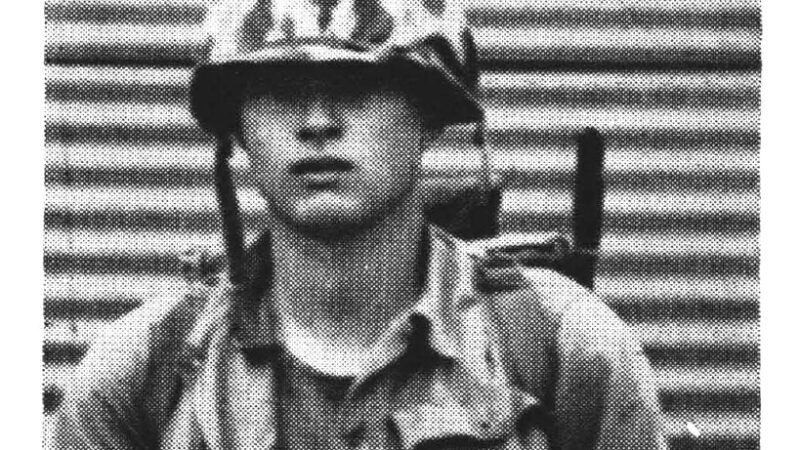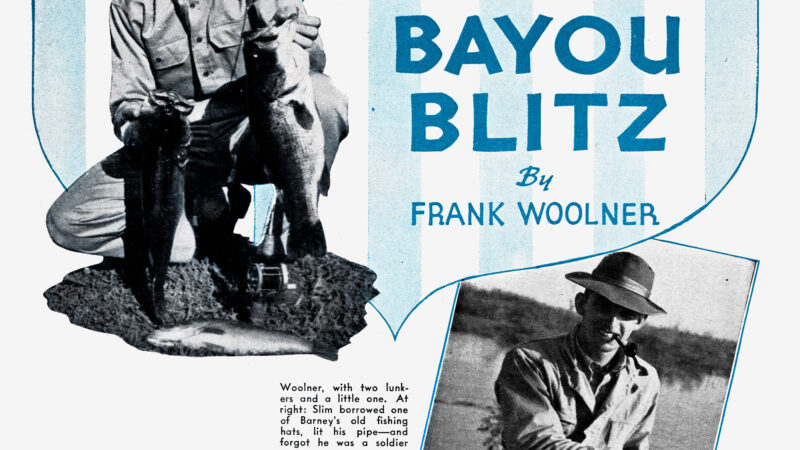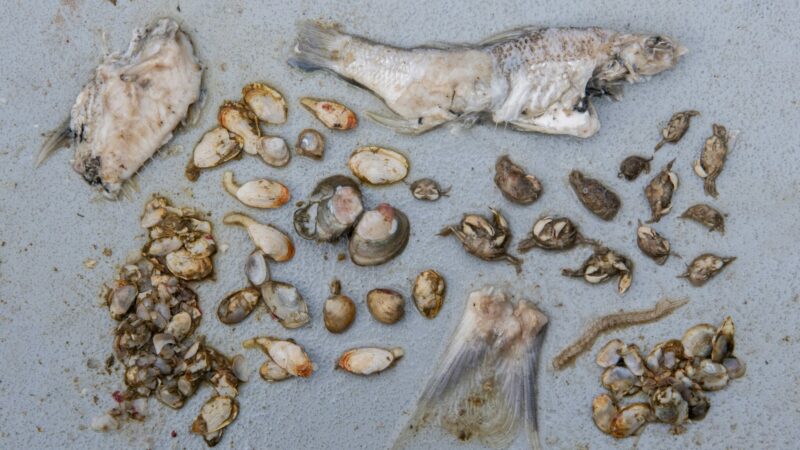.380 vs. 9mm: Which Is the Better Cartridge for Personal Protection?
We may earn revenue from the products available on this page and participate in affiliate programs. Learn More ›
Every day someone is buying their first handgun and, for many new shooters, .380 vs. 9mm is a valid comparison to consider. Both cartridges have the same bullet diameter, and user-friendly pistols are offered for each. It’s easy to draw hasty conclusions, but deciding what’s best for you requires a closer look.
To help sort this out, we will look at what each cartridge is, and the pros and cons of choosing either. This won’t be a comprehensive dive into ballistics, but it will help you make an educated decision before buying a self-defense handgun. Before we get into the weeds on the .380 vs 9mm, the first step is to examine the benefits of buying a handgun for concealed carry chambered for either cartridge.
Why Choose a Small Handgun?
One of the obvious advantages of carrying a smaller-caliber handgun is it will better integrate into your daily life — you can comfortably carry a compact pistol more easily, so you’re more likely to carry it. Generally, semi-automatic pistols are your best bet, because they have higher capacity magazines (which you can’t get with a revolver), and they have decreased felt recoil and muzzle flip. In other words, they’re easier to shoot well.
Today’s semi-automatic pistols are very reliable, and contemporary bullet designs make compact and micro-compact pistols extremely effective. In just the past several years, gun manufacturers have introduced numerous sub-compact and micro-compact concealed-carry pistols that are convenient to carry, easy to shoot accurately, and that have great ammunition capacity.
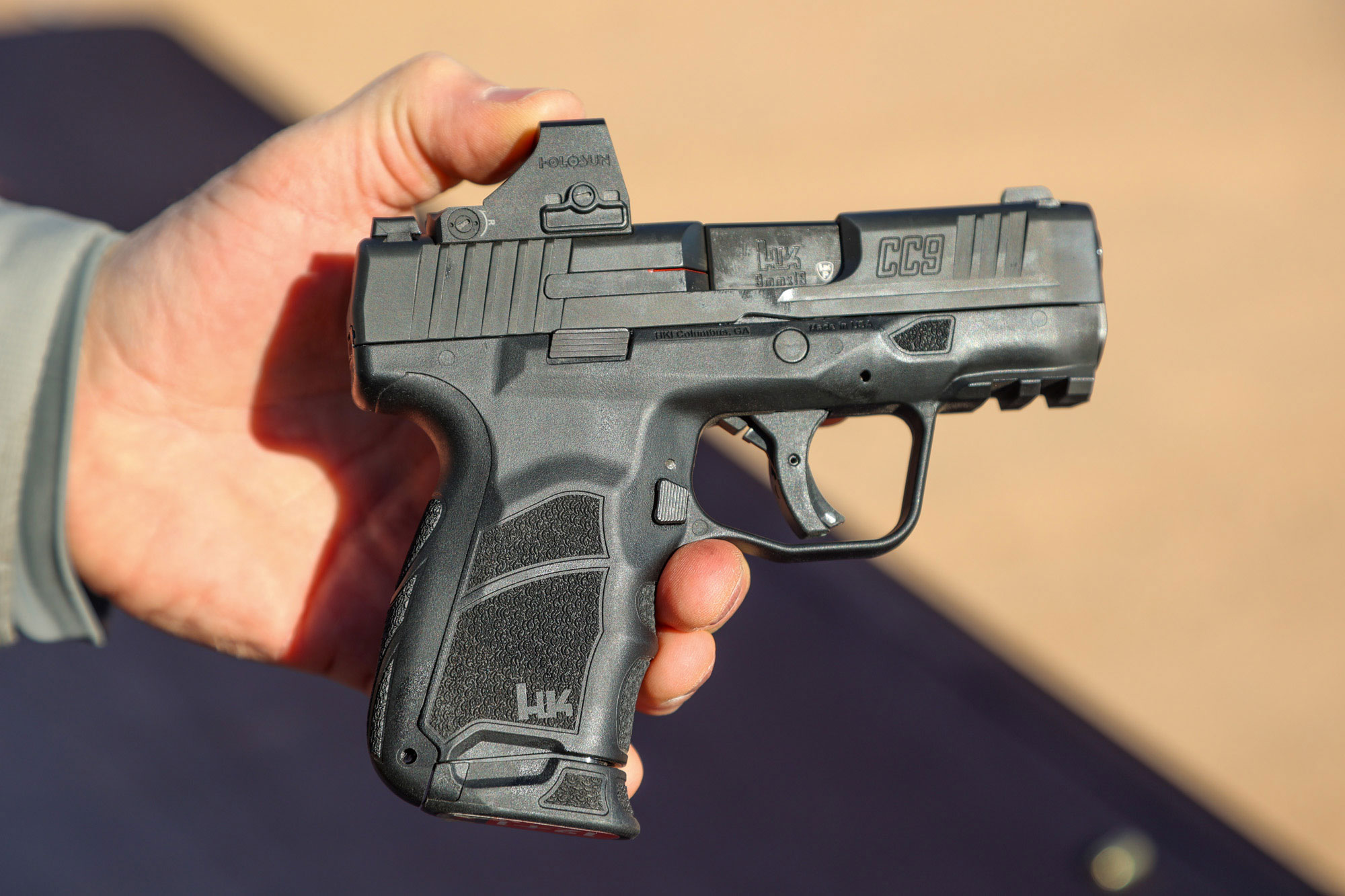
.380 vs. 9mm: Things to Consider When Choosing
The most common concealed-carry pistol cartridges are the 9mm and .380 ACP. While sharing virtually the same bullet diameter as the famed 9mm round, the .380 is certainly not equal to the 9mm in overall performance. The 9mm is a heavier cartridge. It offers a large case, more powder, and heavier bullets — meaning it will generally penetrate deeper and cause larger wound cavities than the .380 ACP.
Penetration
Penetration is a factor to consider when selecting a cartridge, as it ensures vital organs can be reached by the fired projectile — and a threat can be effectively stopped. If a round lacks penetration, the desired effect (stopping the threat) might not be achieved, especially if the attacker is wearing heavy or thick clothing. By technical law enforcement standards, you generally want a minimum of 12 inches and a maximum of 18 inches in calibrated ordnance gelatin (those big blocks of yellow gel firearms testers shoot into) penetration.
Expansion
Expansion and/or tissue disruption is another important factor in defensive bullet performance. There are no hard-and-fast recommendations for expansion but, generally speaking, shooters should be seeking a round that will expand a minimum 1.5 times its original diameter. That means a .6-inch expanded size for 9mm and .380 ACP. Traditionally, this has been accomplished with a hollow point projectile. However, the fluted solid projectiles from Lehigh Defense, Black Hills Ammo, Norma, and Inceptor ammunition accomplish tissue disruption in a different way, and don’t sacrifice penetration. Rapid expansion of hollow-point bullets acts as an arresting force and, in lighter loads, can make penetration inadequate.
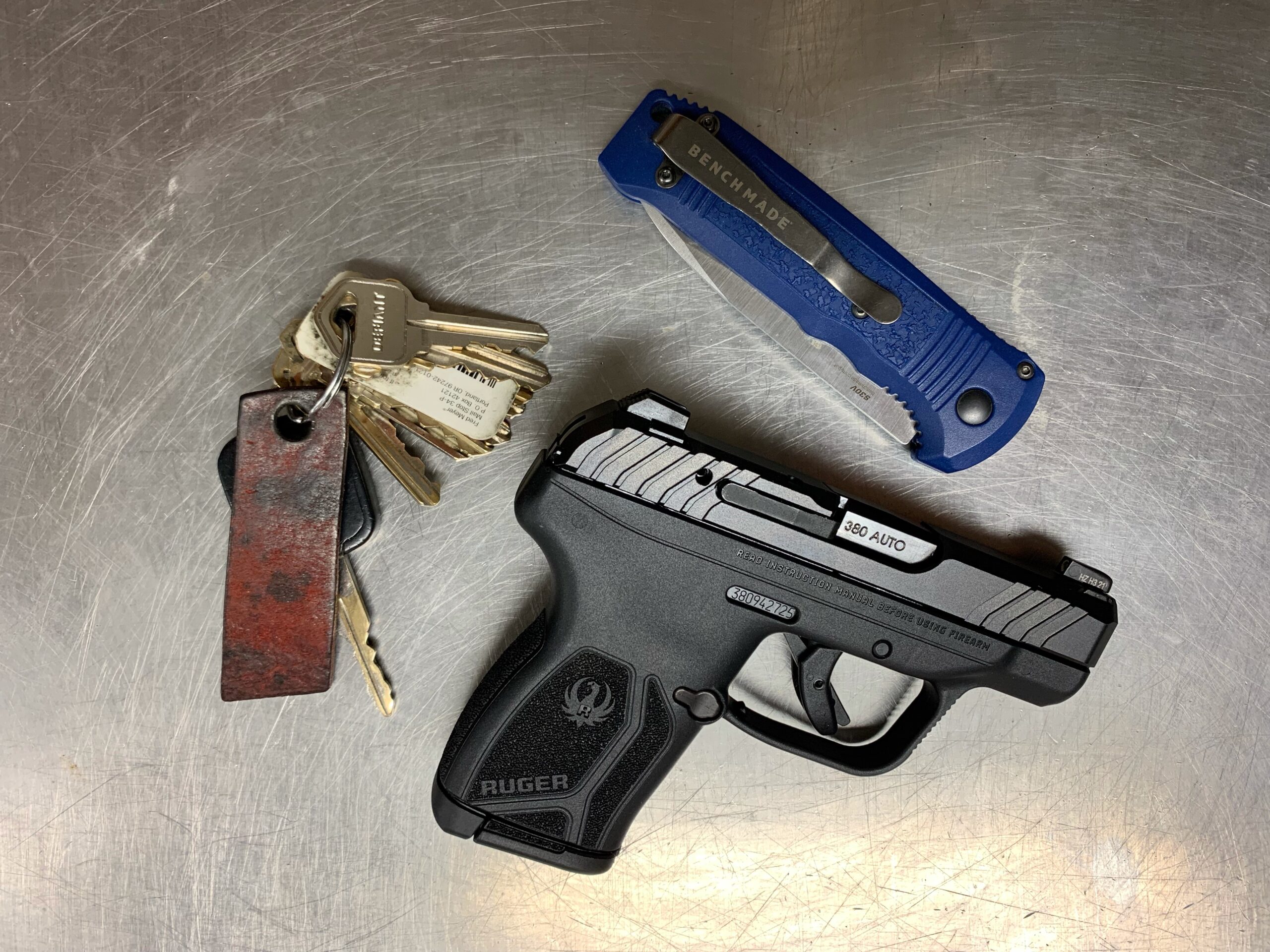
Fit and Functionality
Cartridge performance isn’t the only thing to think about when choosing between .380 and 9mm. You should also consider how well a given pistol fits you, and how easy it is to carry, manipulate, and shoot accurately. A pistol that’s too big or small for you to shoot well won’t benefit you in a self-defense situation.
.380 vs. 9mm, Head-to-Head
Now, let’s look at the details of the 9mm vs. .380 decision, plus some good ammo options for each.
9mm Luger
- Bullet Diameter: .355 inches
- Case Length: .754 inches
- Overall Length: 1.169 inches
- Case Capacity: 13.30 grains of H2O
Pros
- Good power and penetration
- Wide variety of quality ammo
- Many pistols to choose from
- Practice ammo is affordable
Cons
- More recoil than .380
The 9mm is the most popular pistol cartridge on the planet. Ammunition availability is generally very good, meaning you can find it for sale in volume, just about anywhere. Ammunition manufacturers have dedicated significant research and development to the round, and it is the best it has ever been. The U.S. military, FBI, other government agencies, state, county, local law enforcement, and countless civilian shooters rely on the 9mm for good reason. It’s reliable, low recoiling, and extremely accurate. Equally important, practice ammo is relatively abundant and affordable.
Cartridges for 9mm are loaded in a variety of bullet weights, designs, and material compositions. These include lead, copper, and even a polymer matrix. The most common defensive rounds will have a lead core and copper jacket, or be solid copper.
Self-Defense 9mm Ammo
Here’s a look at three excellent choices for self defense 9mm ammo.
Federal 124-grain Punch JHP
Federal’s HST line is the duty load of choice by law enforcement officers throughout the world. It has a specifically designed hollow point that won’t plug while passing through a variety of barriers, and the bullet jacket and core stay together to provide nearly 100 percent weight retention, even when shot through most intermediate barriers. HST is incredibly accurate and produces the desired level of penetration for personal defense situations without over penetrating. The bullet nose profile, nickel-plated case and high performance primer provide the ultimate in function and reliability in semi-automatic pistols and is always my first choice in 9mm defensive loads.
Remington Golden Saber 124-grain JHP
Remington ammo has brought back their classic Golden Saber bonded hollowpoint load in recent years, and it’s a great option for self defense. Our favorite has a 124-grain bullet with a large hollow point and jacket that’s bonded to the lead core. It’s +P designation indicates that it’s loaded to maximum pressures and will give you the best velocity and excellent terminal performance. It will have slightly more recoil than other 9mm loads but, if you can shoot it well, the trade-off is worth it.
READ NEXT: Best 9mm Ammo
Hornady 135-grain Critical Duty JHP
Hornady’s Critical Duty round is loaded with the unique FlexLock bullet, delivering “barrier blind” performance when shot through common urban barriers. The FlexLock bullet incorporates two advanced features to deliver superior barrier penetration and consistent performance in FBI tactical handgun ammunition tests (FBI protocol). The patented Hornady Flex Tip design eliminates clogging and aids in bullet expansion. A large mechanical jacket-to-core InterLock band works to keep the bullet and core from separating for maximum weight retention, excellent expansion, consistent penetration and terminal performance through all FBI test barriers. This round is the current issue load for FBI agents.
.380 ACP
- Bullet Diameter: .355 inches
- Case Length: .680 inches
- Overall Length: .984 inches
- Case Capacity:11.8 grains H2O
Pros
- Ultra-low recoil
- Good Capacity
- Very concealable firearms
Cons
- Not as powerful as 9mm
- Practice ammo is more expensive than 9mm
The .380 ACP does nothing that the 9mm can’t do better, and for far less money. The exception is that felt recoil will be less in some platforms, but with a slight reduction in recoil comes a significant reduction in terminal performance, magazine capacity, and in many cases, reliability.
Some folks will find the .380 ACP preferable because pistols like the Ruger LCP Max have great capacity and are incredibly convenient to carry and easy to shoot. If you prefer to carry a .380, I highly recommend you choose one of the following fluted, non-expanding rounds. I’ve personally witnessed and taken part in spiral fluted .380 testing and development, and recommend them. These rounds penetrate 10 to 15 inches when shot into ballistic gelatin, whether bare or through four layers of denim or a thick leather jacket.
Underwood Ammo Extreme Penetrator
Developed in conjunction with Lehigh Defense, this spiral fluted ammunition does not rely on a hollow point design that can get plugged up with clothing and fail to expand. The Extreme penetrator is a solid copper projectile that relies on higher than average velocity and fluid disbursement from its spiral fluted design. The cutting edges on the projectile’s forward surface redirect the tissue it impacts and spirals deep into the target like a corkscrew. Weight retention is near 100 percent and the projectile does not rely on a hollow point design to be effective.
Inceptor ARX
Inceptor ammunition, formerly PolyCase Ammunition, blazed the way for spiral fluted ammunition. ARX, short for Advanced Rotational eXtreme, features a non-expanding bullet that transfers both the directional and rotational force of the projectile to the target, producing exceptional penetration, while also reducing the risk of over-penetration. The ARX load is constructed of a polymer copper blend. Yes, you read that right, the round is partially made of plastic, which acts like a frangible round that quickly fragments after impacting a hard surface.
FAQs: Answers to Your .380 vs. 9mm Questions
All things being equal, yes, the .380 will produce less felt recoil than a 9mm. However different guns recoil differently. Generally, the lighter the gun and the heavier the load, the more recoil you’ll feel.
This isn’t exactly the right question to be asking about a cartridge. Forget “knockdown power.” You want your bullet to penetrate deeply and expand widely and consistently. In those two performance metrics, the 9mm has the advantage over the .380.
Choosing a cartridge for everyday concealed carry is very much a personal choice. Variables like body type, style of dress, and firearm experience all come into play. With that said, there are a ton of great micro 9mm pistols out there and there’s a wide selection of 9mm ammo for personal protection. That makes the 9mm Luger tough to beat.
No, the bullets are the same diameter, but the 9mm is more powerful.
Because of it’s low recoil, many female shooters prefer the .380, but many male shooters also find it to be a great option. It is gender neutral.
Final Thoughts on the .380 vs 9mm
It’s beneficial to educate yourself on the potential advantages and disadvantages of different cartridges, but for self defense, you need to find what will work best for you. That means a pistol that you will carry all the time, and can operate confidently and proficiently under stress. Extra power cannot make up for failure to shoot accurately. Still, in this case, the 9mm will be the better option for most people.
The post .380 vs. 9mm: Which Is the Better Cartridge for Personal Protection? appeared first on Outdoor Life.


